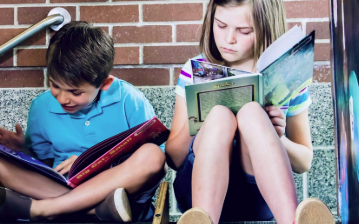Reading is more than a literacy skill—it can be a powerful tool for nurturing self-esteem. When students experience success in reading, feel represented in the stories they explore, and develop a sense of ownership over their learning, their confidence grows. Reading encourages personal growth, helps students see their value, and opens doors to new possibilities.
Experiencing Achievement
Completing a book, understanding a challenging passage, or improving reading fluency all contribute to a sense of accomplishment. These small wins reinforce the idea that effort leads to success, which is a core component of self-esteem. Consistent practice and encouragement help students believe in their ability to grow as readers.
Seeing Yourself in Stories
When students see characters who look like them, share their experiences, or overcome similar challenges, they feel validated and understood. Representation in literature builds a sense of belonging and reminds readers that their voices and stories matter. This connection can be especially meaningful for students who may feel unseen or underrepresented.
Developing Independence and Identity
Choosing what to read and discovering personal interests through books allows students to explore who they are. Independent reading encourages self-reflection and gives readers a sense of control over their learning journey. This autonomy helps build confidence and a positive sense of self.
Learning Through Empathy
Reading about diverse experiences helps students understand others and themselves. Stories about perseverance, kindness, and growth can inspire readers to view their own challenges more positively. This emotional growth supports self-worth and resilience.
Creating a Supportive Reading Culture
A classroom or home environment that celebrates reading, recognizes effort, and offers support helps boost self-esteem. Positive reinforcement, peer encouragement, and accessible reading materials all contribute to a nurturing space where students feel safe to grow.
Final Thoughts
Reading plays a significant role in shaping how students see themselves. Through achievement, representation, and reflection, reading fosters confidence and self-belief. By creating meaningful reading experiences, educators and caregivers can support both academic growth and emotional well-being.


